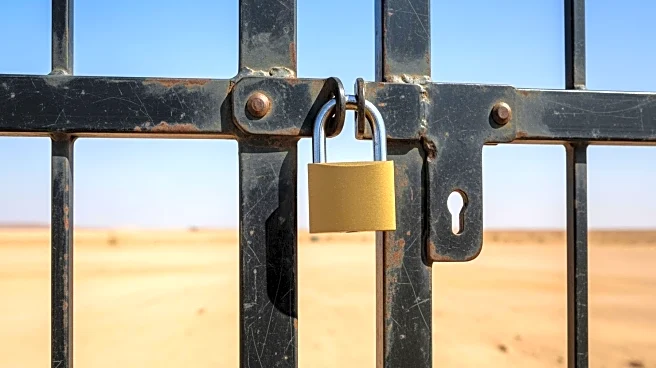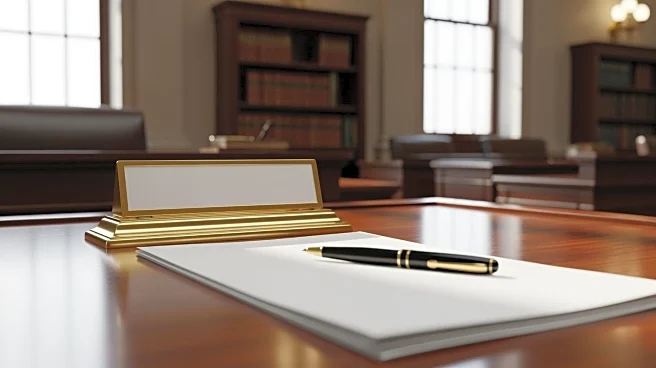What's Happening?
Prime Minister Benjamin Netanyahu has ordered the Rafah border crossing between Gaza and Egypt to remain closed, despite an announcement from the Palestinian embassy in Egypt that it would reopen. The decision is contingent on Hamas fulfilling its obligations
under the ceasefire agreement, including the return of hostages' remains. This move comes amid ongoing tensions and negotiations following a ceasefire between Israel and Hamas.
Why It's Important?
The closure of the Rafah border crossing is a critical issue as it affects the movement of people and goods in and out of Gaza, impacting the humanitarian situation. For Israel, keeping the crossing closed is a strategic decision to maintain pressure on Hamas to comply with the ceasefire terms. For Palestinians in Gaza, the closure exacerbates the humanitarian crisis, limiting access to essential supplies and medical care. The decision also reflects the broader geopolitical tensions in the region, with Egypt playing a key role in mediating between Israel and Hamas.
What's Next?
The reopening of the Rafah crossing will depend on Hamas's actions in the coming days. If Hamas complies with the ceasefire terms, there may be a gradual easing of restrictions. However, any perceived violations could lead to further closures or escalations. The international community, particularly Egypt and other regional actors, will likely continue to mediate to ensure the ceasefire holds and humanitarian needs are addressed. The situation remains fluid, with potential for both diplomatic progress and renewed conflict.
















